Problem-Solving Skills Normal Addition & Subtraction Worksheets for Ages 4-8 - Page 2
33 filtered results
-
From - To
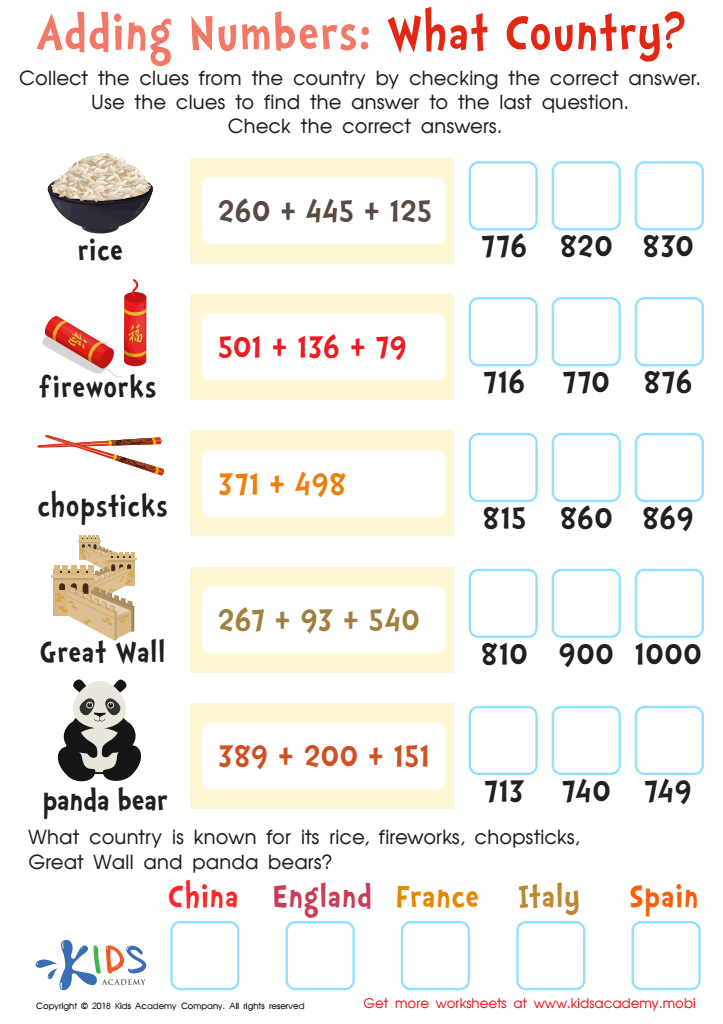

Adding Numbers: What Country Worksheet


Word Problems: Assessment 2 Worksheet


Addition and Subtraction: Word Problems Worksheet
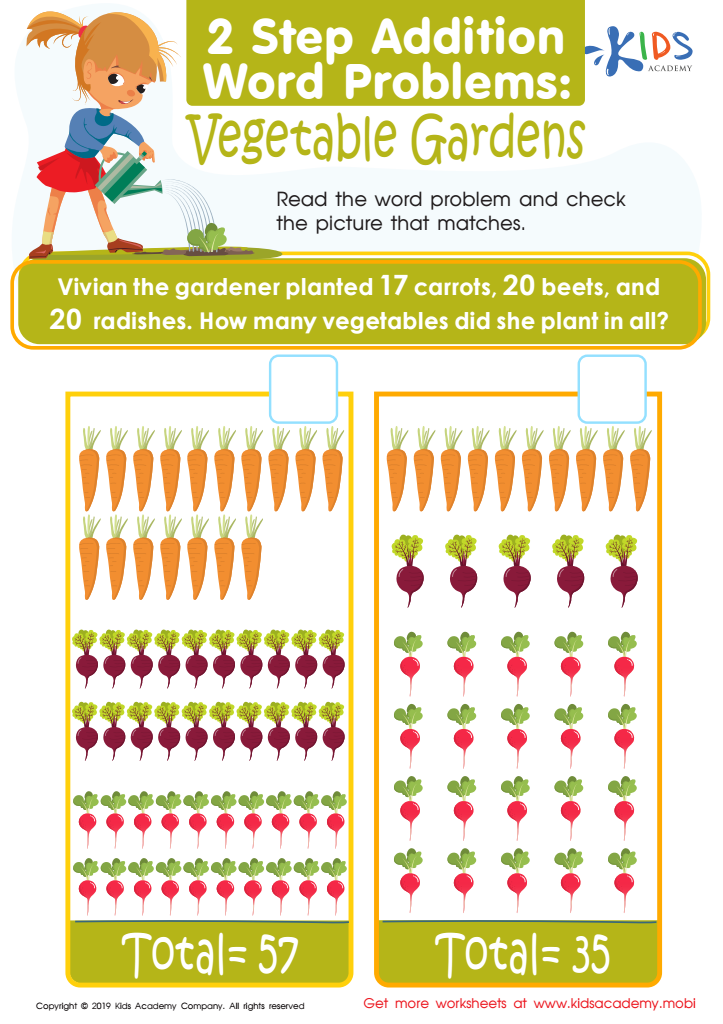

Vegetable Gardens Worksheet
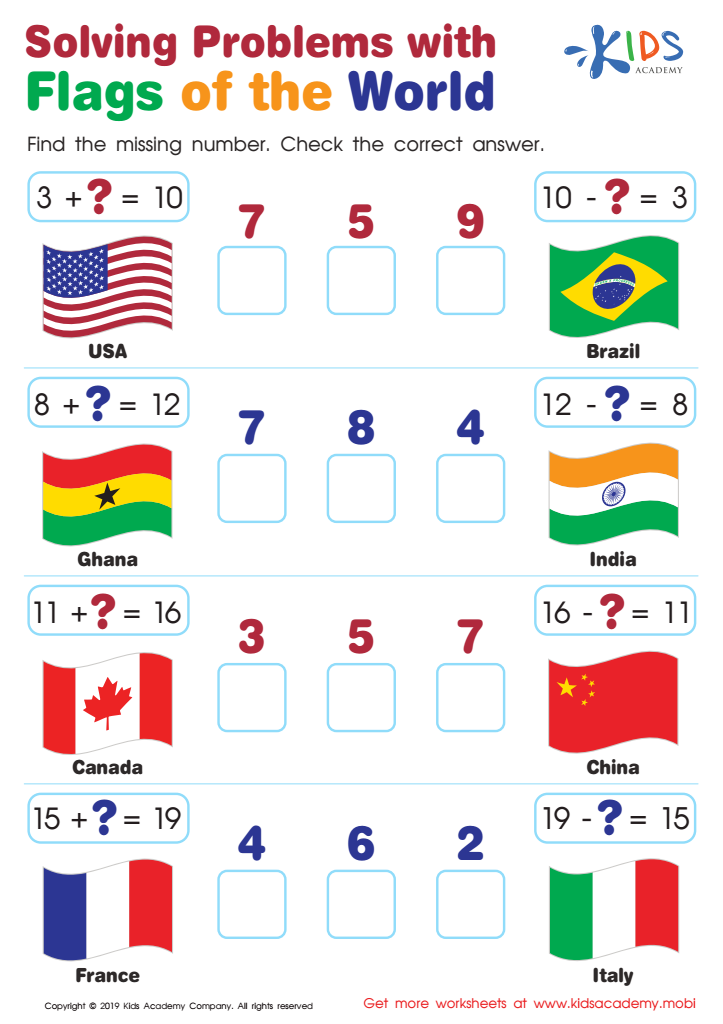

Solving Problems with Flags of the World Worksheet
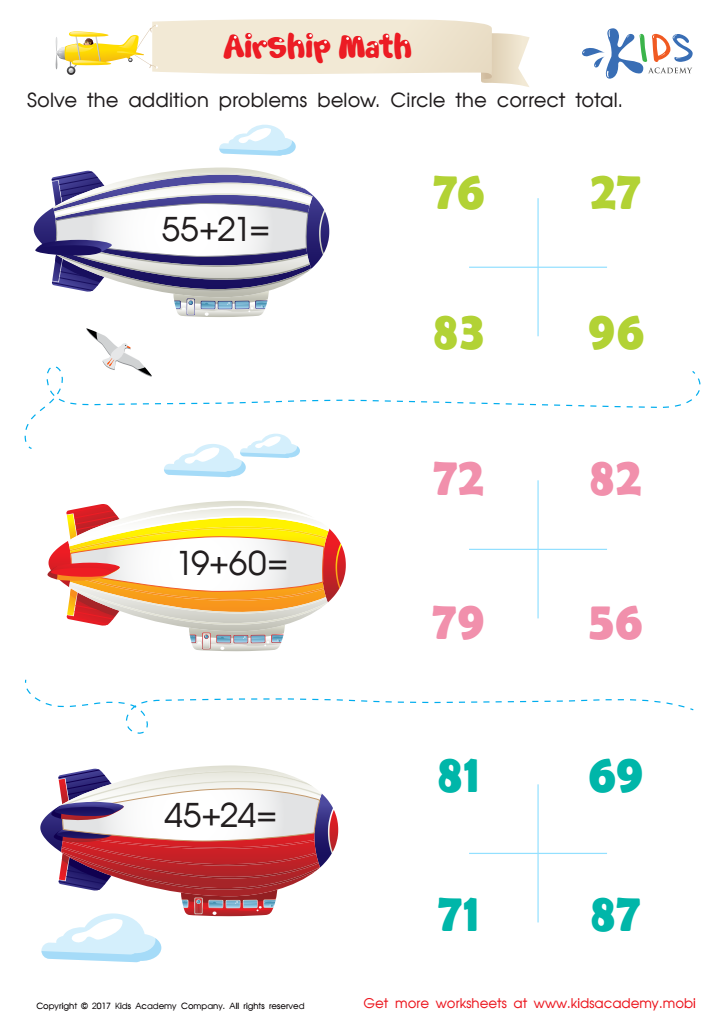

Airship Math Addition Printable
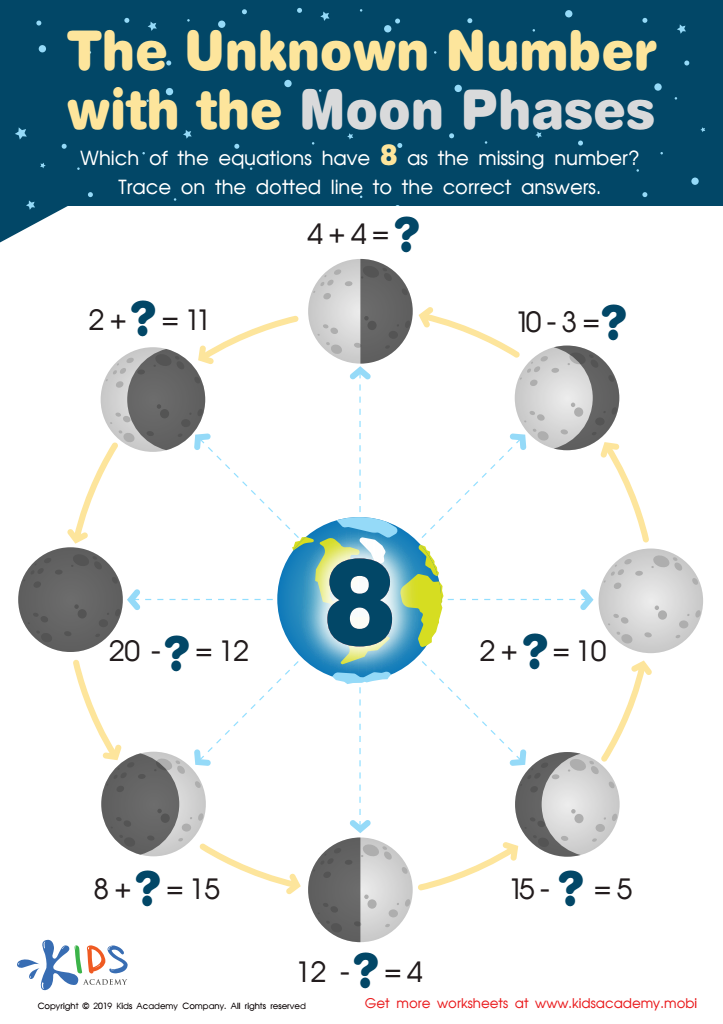

The Unknown Number with the Moon Phases Worksheet
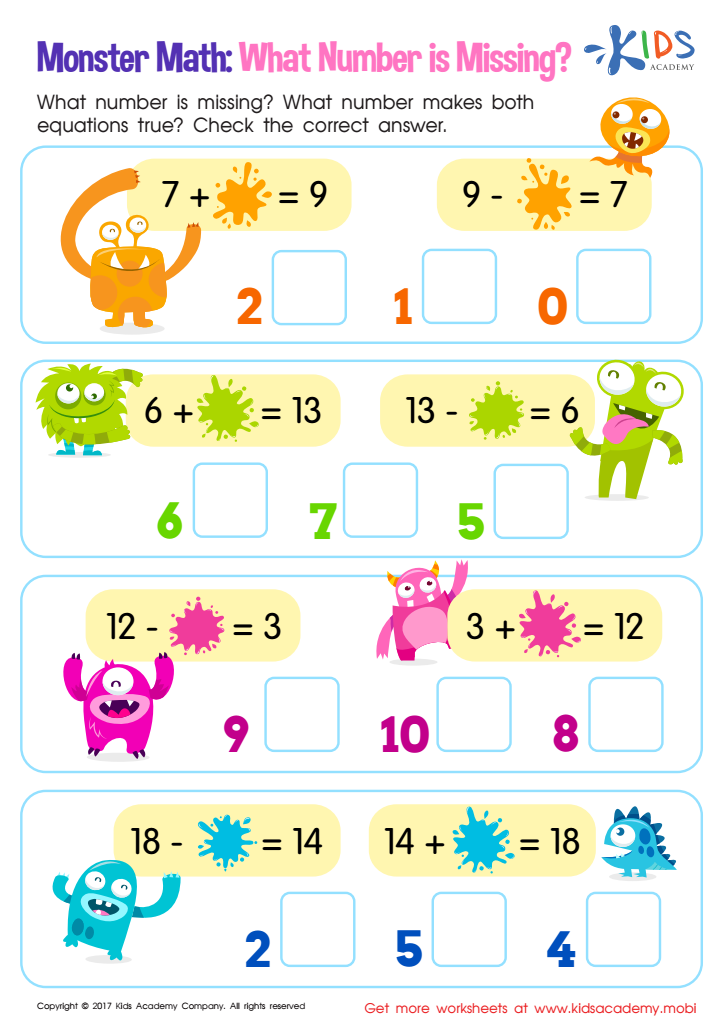

Missing Number: Monster Math Worksheet
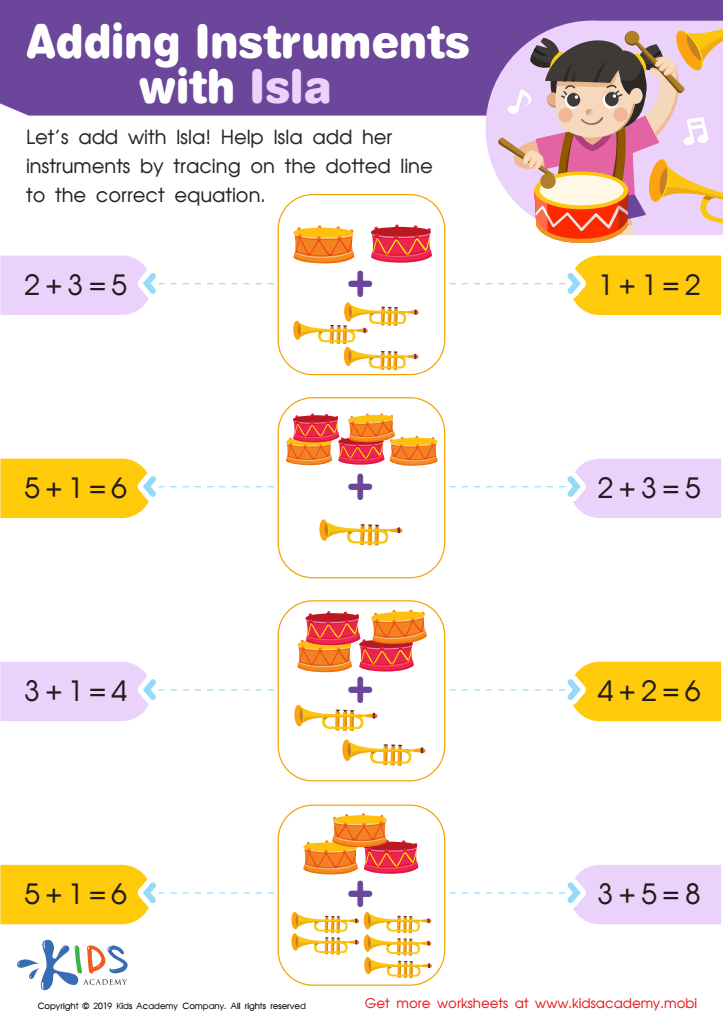

Adding Instruments with Isla Worksheet
Problem-solving skills, particularly in the context of normal addition and subtraction, form a critical foundation for children aged 4 to 8. During these formative years, mastering addition and subtraction fosters essential cognitive development in several ways. Firstly, it enhances numerical literacy, enabling children to understand basic mathematical concepts, which are crucial for future academic success. This early numeracy promotes a sense of numerical order and relationships, helping children grasp more complex mathematical operations later on.
Moreover, problem-solving through addition and subtraction cultivates critical thinking skills. It encourages young minds to analyze, strategize, and apply logic to find solutions. These skills are not restricted to math but extend to everyday decision-making processes and problem resolution in diverse situations.
Teaching addition and subtraction also incorporates practical, real-world applications, making learning more relatable and meaningful. Children learn to manage simple tasks, like counting toys or sharing snacks, imparting a sense of accomplishment and independence.
Additionally, tackling mathematical problems can boost confidence and persistence. When children successfully solve problems, they experience a sense of achievement that fosters a positive attitude towards learning and challenges.
For parents and teachers, prioritizing these skills in early education ensures holistic development, equipping children with vital tools for academic progression and everyday life, setting the stage for future success.
 Assign to My Students
Assign to My Students























